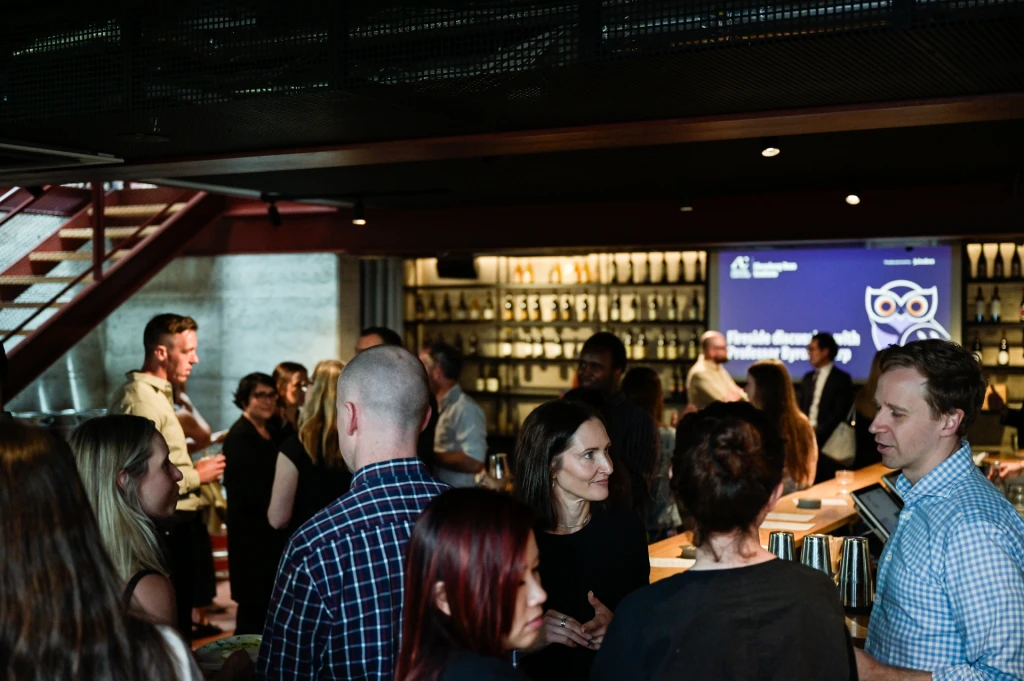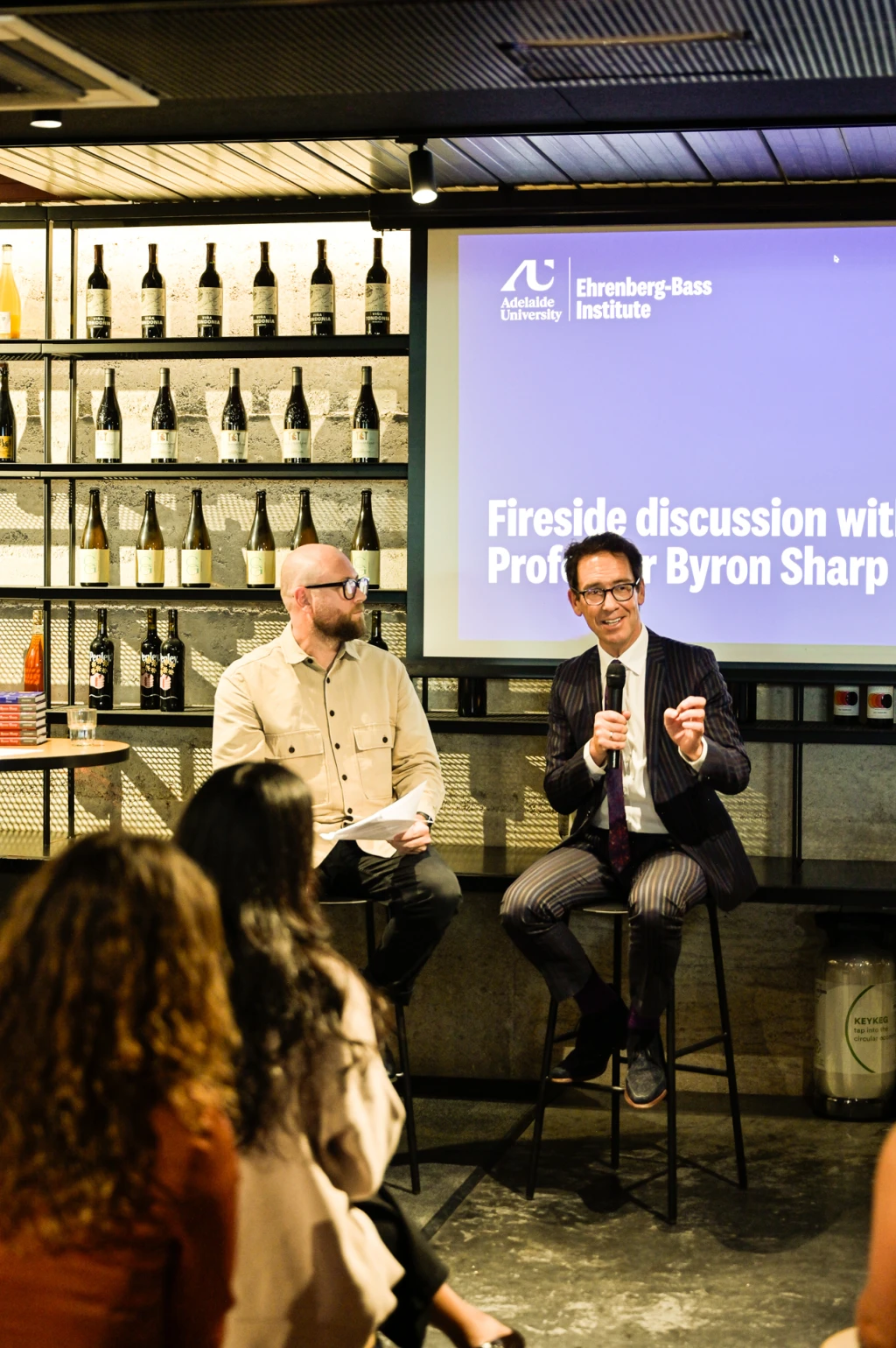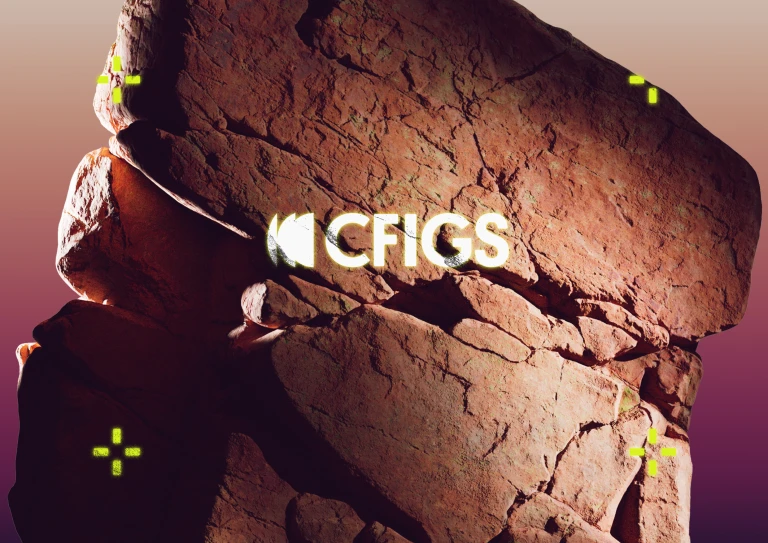Highlights from our exclusive conversation
This week, Juicebox welcomed clients and key partners to an intimate event featuring Professor Byron Sharp, Director of the Ehrenberg-Bass Institute and one of the most influential voices in modern marketing. It was a rare chance to move beyond theory and hear directly from the researcher whose work has reshaped our understanding of how brands grow.
The room filled quickly. People came not just to hear principles, but to understand the person behind them; the provocateur, the scientist, the storyteller.

Why This Sponsorship Matters
Juicebox is proudly one of only two agencies in Australia to sponsor the Ehrenberg-Bass Institute. For our clients, this partnership offers a distinct advantage. It provides direct access to the same scientific laws, empirical models and behavioural insights that guide the strategies of global heavyweight brands like Coca-Cola, Google and Amazon.
In a field often shaped by trends, opinions and shifting playbooks, this relationship ensures our recommendations remain grounded in what consistently impacts brand growth. It also gives us a rigorous lens for interpreting new technologies and emerging behaviours; especially as AI, automation and the intention economy accelerate change across every category.
A rare window into the mind behind the research
Before diving into growth, metrics and mental availability, the conversation opened with a look at the journey that led Sharp into marketing science. He spoke about curiosity over certainty, the early research problems that captured his attention, and the origins of what would become the world’s most cited marketing science institute.
It set a tone that carried through the session: honest, rigorous and unexpectedly human.
Evidence as the new common language
One discussion thread explored how the Institute’s ideas have shifted from contrarian to conventional wisdom. Concepts once seen as academic — such as penetration, mental availability and category entry points — now appear in boardroom conversations across industries.
Mental Availability takes centre stage
The audience quickly connected to the conversation around long-term mental availability. After years of performance-first tactics and efforts to expand physical availability due to new digital channels, Sharp reinforced that sustainable growth still depends on broad reach, consistent presence and distinctive brand assets to mental availability.
Fragmented channels and proliferating metrics may complicate the landscape, but they don’t rewrite the fundamentals: brands grow by being easily recognisable and easily recalled at the moments people buy.
AI, intent and a new layer of decision-making
The most forward-looking exchange centred on AI’s growing role in how people search, choose and trust. Sharp reflected on a world where intelligent systems summarise brands, infer intent, and eventually act on behalf of consumers.
The discussion raised some compelling ideas:
AI-generated brand interpretations becoming part of the customer journey
the emergence of intent signals as a new marketplace for brands
machine-readability as an extension of physical availbility
trust becoming a competitive moat once brands start to collect, analyse and take action on consumer intent
the possibility that “availability” must evolve to include both human recognition and system-level visibility
Rather than proposing a new theory, Sharp treated AI as an accelerant; one that heightens the need for clarity, consistency and trusted data to inform strategy and tactics.
Translating science into real-world decisions
Many in the room work across complex markets: B2B leaders, infrastructure brands, energy providers, professional services firms and emerging challengers. Sharp addressed the realities they face; from legacy businesses that underinvest in marketing, to ambitious brands navigating rapid category expansion.
His guidance remained grounded in evidence: grow by reaching more buyers, especially light ones. Build memory structures through consistent codes and distinctiveness. Make the brand easy to think of and easy to buy. Technology evolves, but human behaviour changes far more slowly.
Creativity, freshness and the discipline of distinctiveness
The conversation closed with a discussion on creativity — not as decoration, but as a strategic tool for embedding mental structures. Sharp emphasised that brands can evolve, but not at the expense of recognisability. Freshness supports memorability. Consistency supports growth. Great brands strike the balance.
What it means for our clients
For Juicebox clients, the session offered a clear takeaway: when brand and marketing strategies are anchored in empirical evidence and brought to life through creative execution, growth becomes predictable rather than accidental.
Our partnership with the Ehrenberg-Bass Institute helps ensure that our work sits at this intersection — rigorous, modern and prepared for the shifts shaping the next decade of marketing.
Looking ahead
This event is one of several initiatives designed to elevate marketing capability across our client community. If you’d like to explore how evidence-based principles can strengthen your brand, or learn about future events, we’d love to continue the conversation.
Marketing is evolving. The laws of growth remain. And when science and creativity align, brands thrive.










